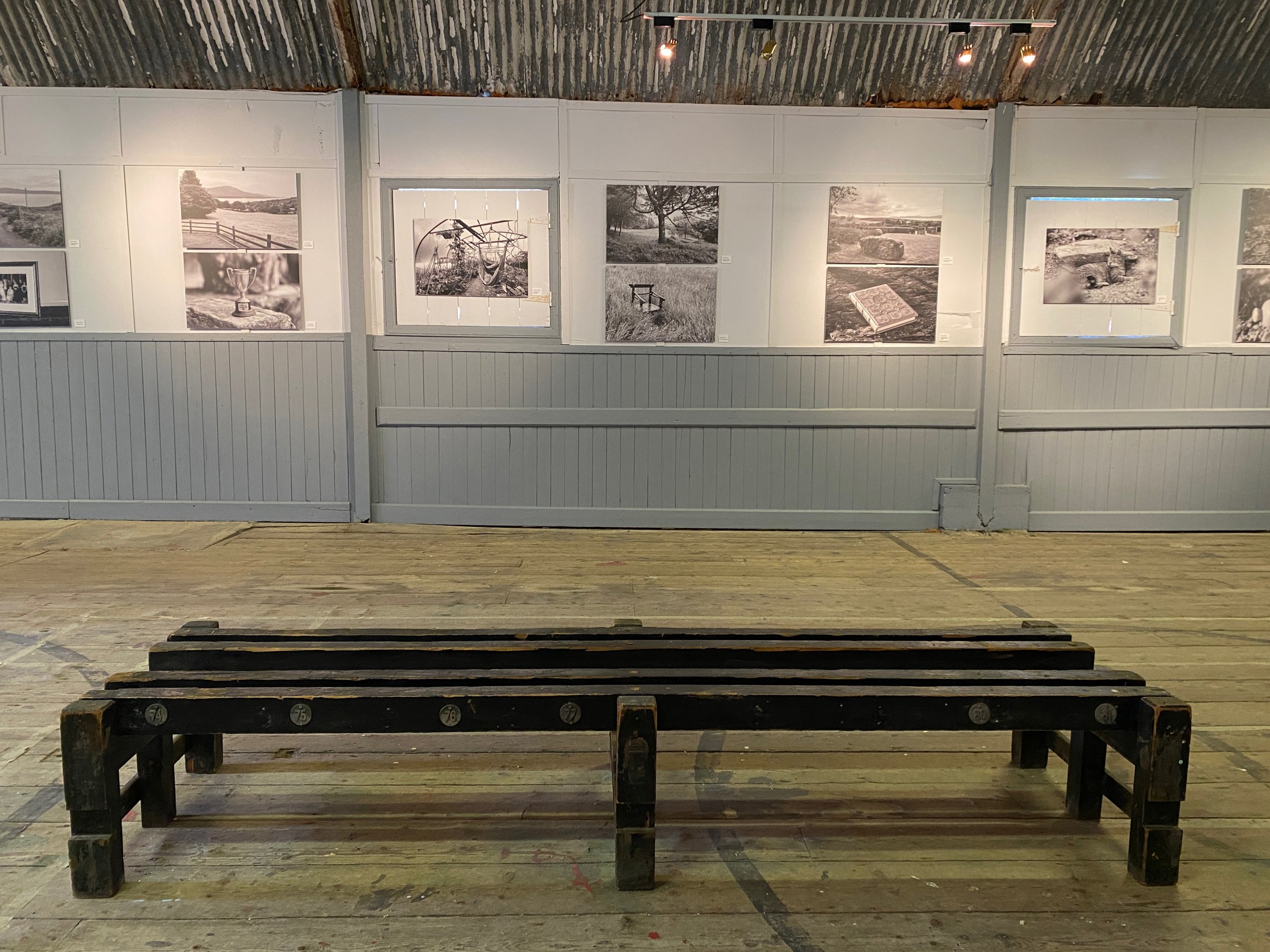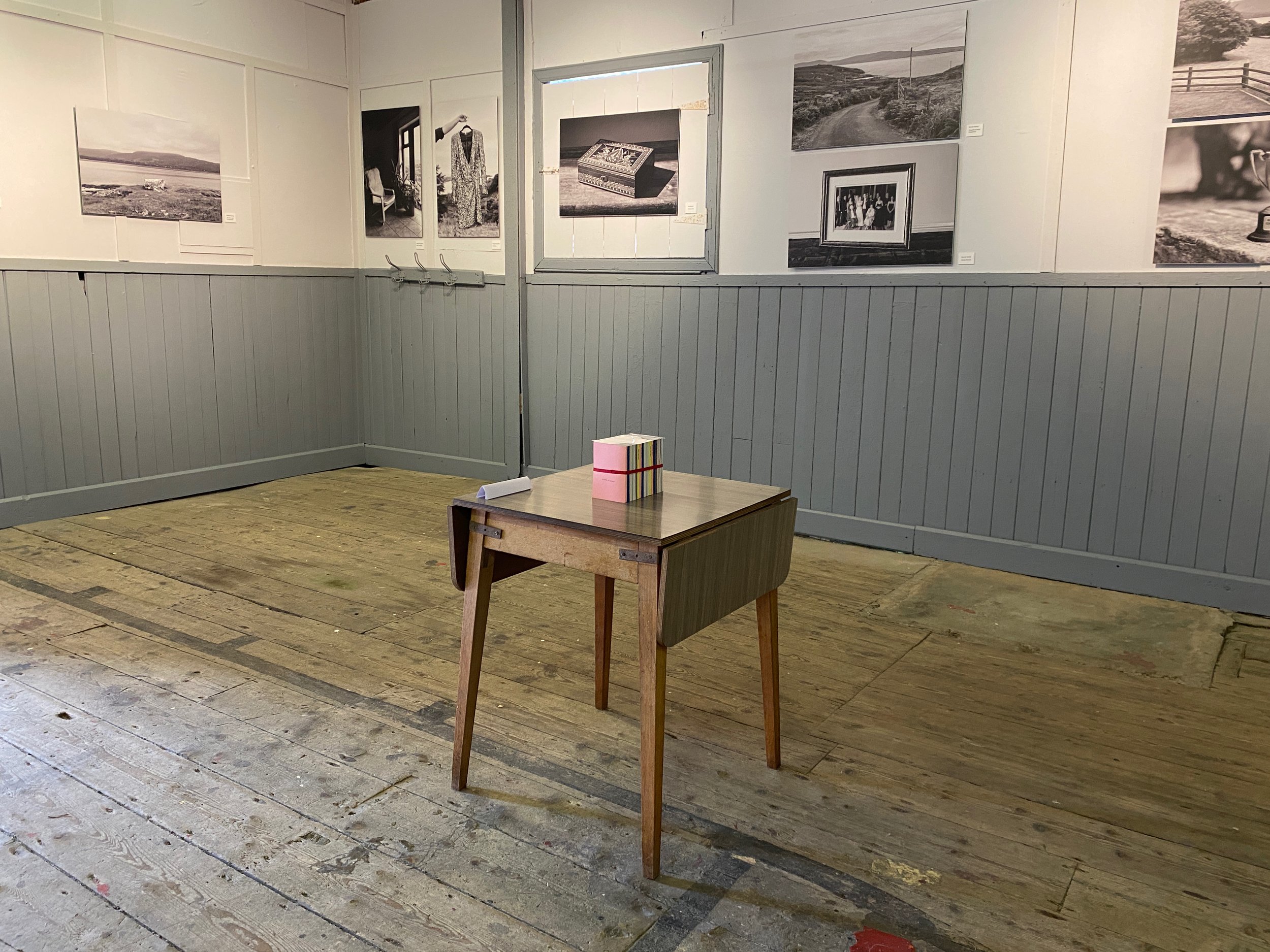







Your Custom Text Here
An island can be both paradise and prison, both heaven and hell. An island is a contradiction between openness and closure, between roots and routes, which islanders must continually negotiate (Godfrey Baldacchino, 2007)
From September 2020 until June 2022, a group of twenty-four women, full-time residents of Bere Island, came together virtually, to reflect on the challenges of Island life at a time of extreme social isolation. For islanders, the experience of isolation has a long and complicated history. Within the ideological frame of western modernisation, it is often assumed that Islandness equates to isolation. This assumption was often aligned with other exclusionary characteristics, such as the ‘peripheral’, or ‘backward’, each of which, places the Island outside of time, and outside of history. On the other side of this picture, the island is also celebrated and valorised as a place of escape, to get away from the hustle and bustle of the city, the masses, the pollution, a place of unreconstructed, natural beauty. In recent times, these binary representations have begun to fade and become less distinctive. Due largely to the experience of climate change, islands and island life are being reconsidered and repositioned as important spaces to think about how we live together in a world that is increasingly dis-placing the human being as its central agent. Within this context, other binaries are also being troubled, between scientific knowledge and indigenous knowledge, land and the sea, male and female.
These tensions are captured in the durational project the hold, which simultaneously names the warm loving embrace of island relations and the constricting, confining experience of island life for women. Navigating these contradictions the Hold prioritises the flow of shared, lived knowledge between island women. Through the lens of quilt making, performance, written word, sound, and photography, the women reflect on the hold that the island has had over them, and the confinements and challenges they face on a daily basis. Each thought-provoking story reflects on the importance of place, and the experience of dis-placement within it. The viewer is invited to be a part of these stories and the unique insights they provide into island life, during a global pandemic.
An island can be both paradise and prison, both heaven and hell. An island is a contradiction between openness and closure, between roots and routes, which islanders must continually negotiate (Godfrey Baldacchino, 2007)
From September 2020 until June 2022, a group of twenty-four women, full-time residents of Bere Island, came together virtually, to reflect on the challenges of Island life at a time of extreme social isolation. For islanders, the experience of isolation has a long and complicated history. Within the ideological frame of western modernisation, it is often assumed that Islandness equates to isolation. This assumption was often aligned with other exclusionary characteristics, such as the ‘peripheral’, or ‘backward’, each of which, places the Island outside of time, and outside of history. On the other side of this picture, the island is also celebrated and valorised as a place of escape, to get away from the hustle and bustle of the city, the masses, the pollution, a place of unreconstructed, natural beauty. In recent times, these binary representations have begun to fade and become less distinctive. Due largely to the experience of climate change, islands and island life are being reconsidered and repositioned as important spaces to think about how we live together in a world that is increasingly dis-placing the human being as its central agent. Within this context, other binaries are also being troubled, between scientific knowledge and indigenous knowledge, land and the sea, male and female.
These tensions are captured in the durational project the hold, which simultaneously names the warm loving embrace of island relations and the constricting, confining experience of island life for women. Navigating these contradictions the Hold prioritises the flow of shared, lived knowledge between island women. Through the lens of quilt making, performance, written word, sound, and photography, the women reflect on the hold that the island has had over them, and the confinements and challenges they face on a daily basis. Each thought-provoking story reflects on the importance of place, and the experience of dis-placement within it. The viewer is invited to be a part of these stories and the unique insights they provide into island life, during a global pandemic.